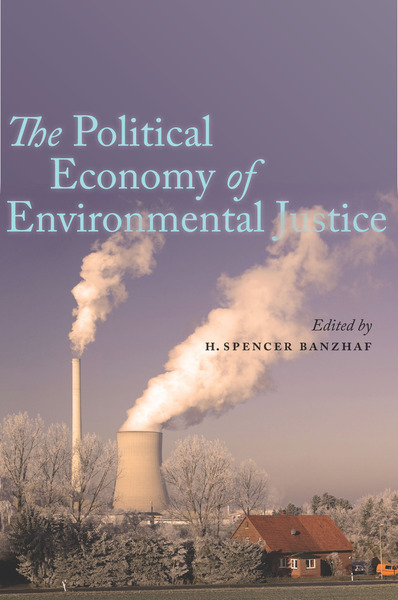
2012
296 pages.
$80.00
Hardcover ISBN: 9780804780612
Ebook ISBN: 9780804782692
The environmental justice literature convincingly shows that poor people and minorities live in more polluted neighborhoods than do other groups. These findings have sparked a broad activist movement, numerous local lawsuits, and several federal policy reforms.
Despite the importance of environmental justice, the topic has received little attention from economists. And yet, economists have much to contribute, as several explanations for the correlation between pollution and marginalized citizens rely on market mechanisms. Understanding the role of these mechanisms is crucial to designing policy remedies, for each lends itself to a different interpretation to the locus of injustices. Moreover, the different mechanisms have varied implications for the efficacy of policy responses—and who gains and loses from them.
In the first book-length examination of environmental justice from the perspective of economics, a cast of top contributors evaluates why underprivileged citizens are overexposed to toxic environments and what policy can do to help. While the text engages economic methods, it is written for an interdisciplinary audience.
About the author
H. Spencer Banzhaf is an Associate Professor of Economics at Georgia State University. Banzhaf is also a Research Associate in the National Bureau of Economic Research and a Senior Research Fellow at the Property and Environment Research Center.
"Enhanced with the inclusion of a comprehensive index, The Political Economy of Environmental Justices is an impressive body of seminal scholarship and very highly recommended for professional and academic library, Environmental Studies and Economic Studies reference collections and supplemental reading lists."
—James A. Cox, Midwest Book Review
"This volume is vital reading to scholars with an interest in understanding the link between policies to address environmental problems and their outcomes. This book will be helpful to policymakers with an interest in improving the lives of those who are currently exposed to disproportionate effects from pollution."
—James T. Hamilton, Duke University and author of Regulation Through Revelation
"This is an excellent book to introduce readers to the complexities of trying to uncover causal effects in the realm of environmental justice."
—Janet E. Kohlhase, University of Houston